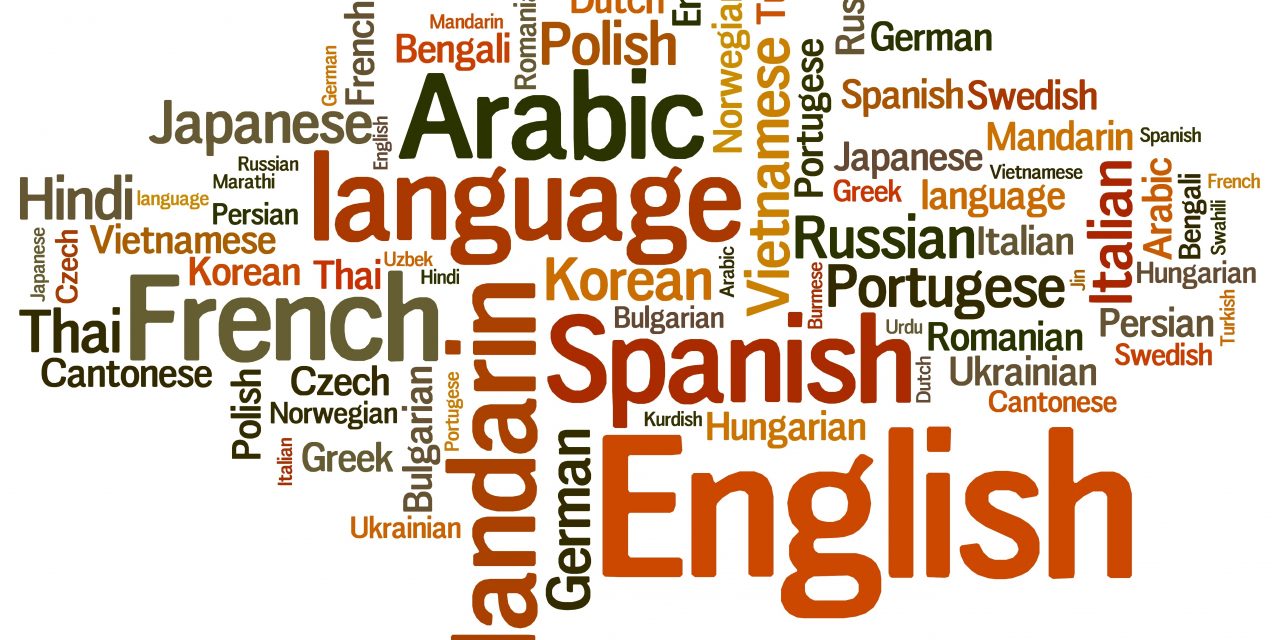Alongside the loss of animals and plant species across Earth, another epidemic is happening at an alarming rate: the mass extinction of endangered languages. An endangered language has very few speakers remaining and language death occurs when the last remaining speaker dies. In the past, there have been instances where whole communities and their languages have been wiped out due to colonial education systems, natural disasters or massacres in the case of many Native American languages.
However, the problem we face today is more a case of a gradual language shift. This is a three-generation long process whereby people learn a more dominant language such as English, Spanish, Arabic or Mandarin due to its accessibility and for more job opportunities. The language becomes moribund, meaning they teach their children this dominant language at the expense of their lesser-known mother tongue. This in turn leads a language to become endangered and eventually die – a calamity that National Geographic claims happens every 14 days on average.
This loss can impede on the scientific world. David Harrison, a linguist and leader of the Enduring Voices Project said: “Each indigenous language contains millennia of human experience, wisdom and practical knowledge about the natural environment”. Not only this, but language is core to our identity. Notable linguist, Claude Hagège has commented on how language is a living organism in which we express our relationship with the world, and is a testimony of human communities.
Leeds University has been involved in a three-year community-based project from January 2013 to December 2016, led by Professor Janet Watson, aiming to document Modern Southern Arabian languages spoken in Oman that have no written form. During this time, The Gryphon was lucky to speak to Faisal who was taking part in the project. He is a native speaker of Shehret and Mehri, which has approximately 50,000 and 180,000 speakers, respectively.
Are you happy that there’s funding for projects to save Shehret and Mehri?
Yes, I’m so happy because here, you write Shehret and you make Shehret words, that means we will protect the language. That’s why I feel happy.
Why do you think it is important to save Shehret and Mehri?
I think it’s important because it’s our duty to save our language, but nobody will do that. I think this time it’s important because this language will die. If nobody saves them, and nobody writes them, and nobody makes words for Mehri and Shehret, they will die.
Are people proud of their language?
Yes, so much. The people are proud to speak Shehret and Mehri. Our life is like a tribe, the tribe is proud to speak the language and this is private for us and our language. When I speak Mehri I also feel proud and something private to our family and surname. I enjoy it when I speak good Shehret. I shout at my brothers and sisters when they speak wrong Shehret. I say “No! That’s wrong!”, they mix it with Arabic and say the words with the wrong accent.
Which languages do your children speak? And do you feel a duty to pass on the language?
My children speak Shehret in my house and in my town. But when they go to their schools, they learn Arabic. Both languages are important to me because Arabic is the language of the Quran and the religion of Islam. Some families only teach their children Arabic, but I think that’s wrong. You have to protect this language and teach it to our children. Shehret, Mehri and Arabic, three languages.
Are there some words that elderly speakers use, that you don’t know?
That is right. There are many words in Shehret that I can’t understand, many old words. There is one old guy and I can’t understand some of his words. He wants to protect his language and write a bit. You need to go to the old people and collect the words, because even I can’t collect all the words in Shehret. There are words they use when they go fishing, build houses, or milk animals that I can’t understand. A lot of knowledge is already lost.
During the project, enough written Mehri was created for the first Mehri e-book for children to be produced. Thousands more Shehret and Mehri words were also recorded which are now being curated at the Endangered Languages Archive based at SOAS University, London.
Some of Faisal’s responses were edited for length and clarity.
“If nobody saves them, and nobody writes them, and nobody makes words for Mehri and Shehret, they will die”
Emily Jacklin
Image: theeducator.com

